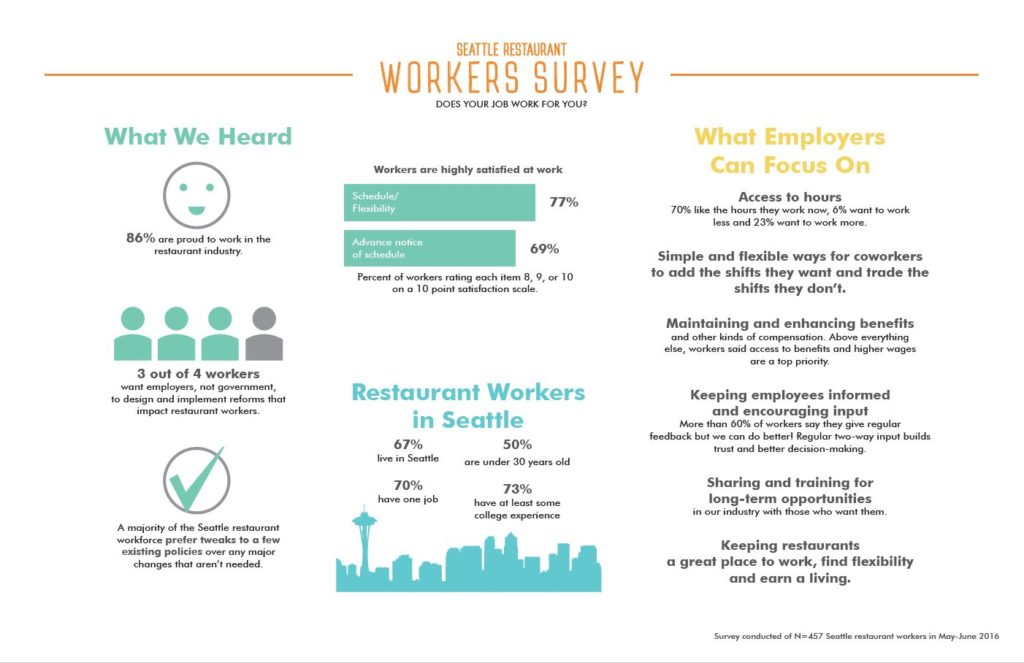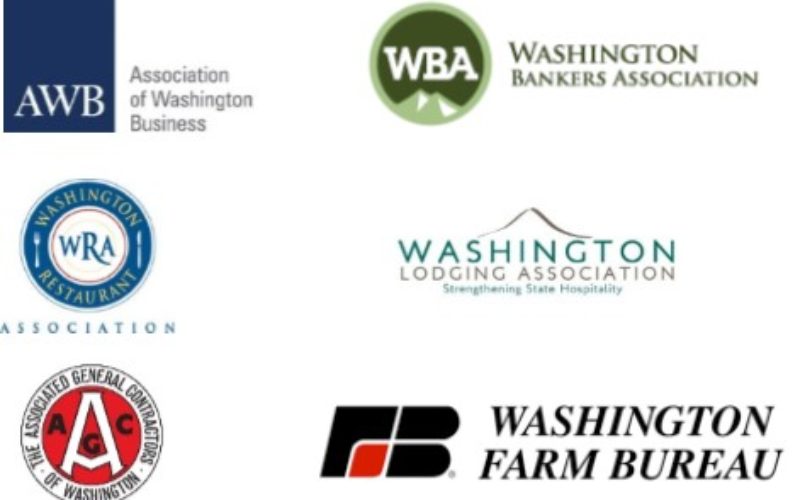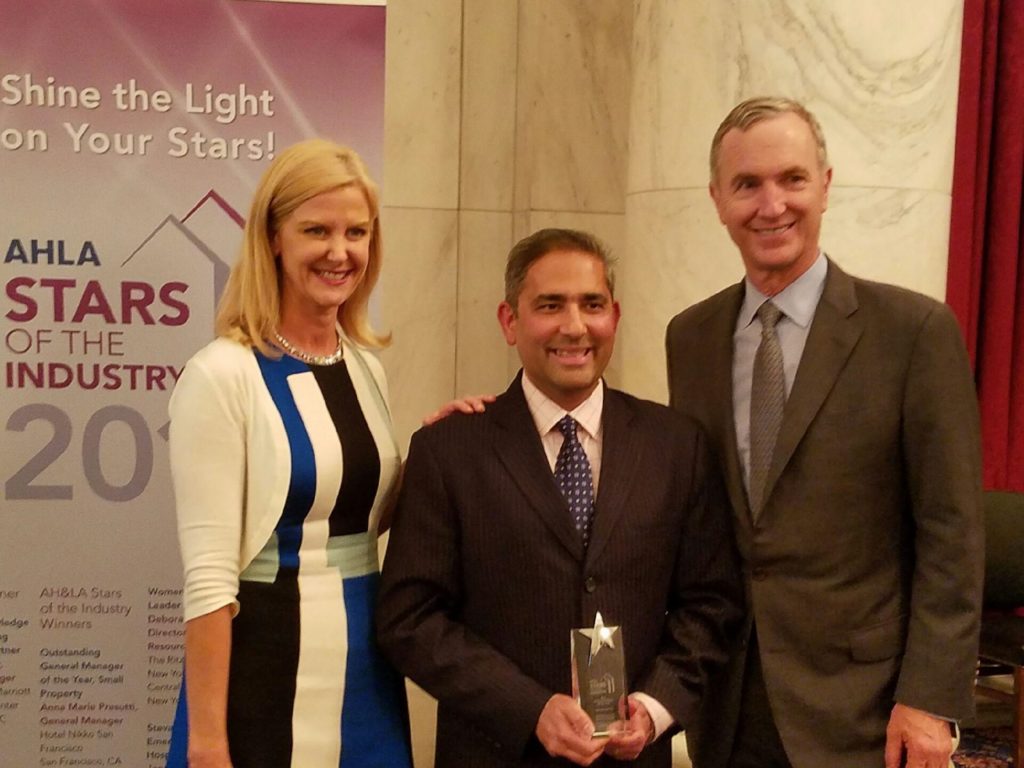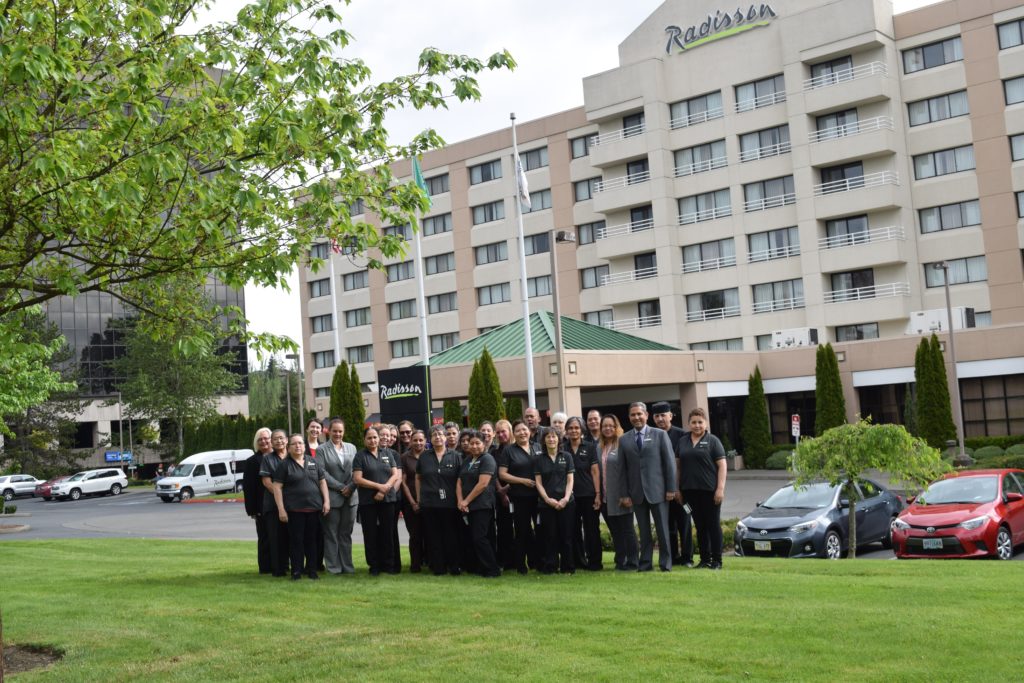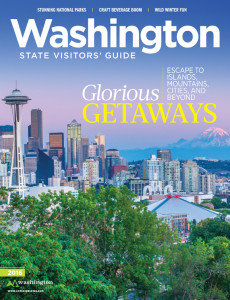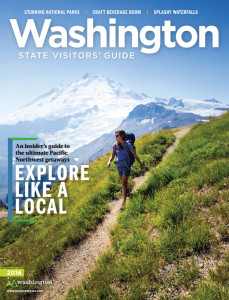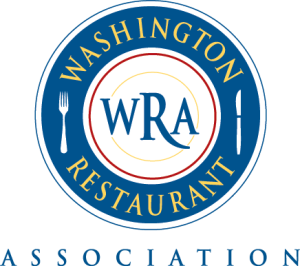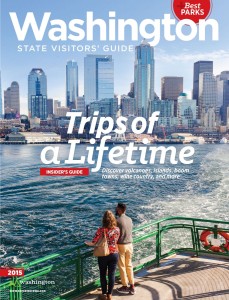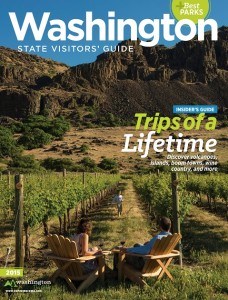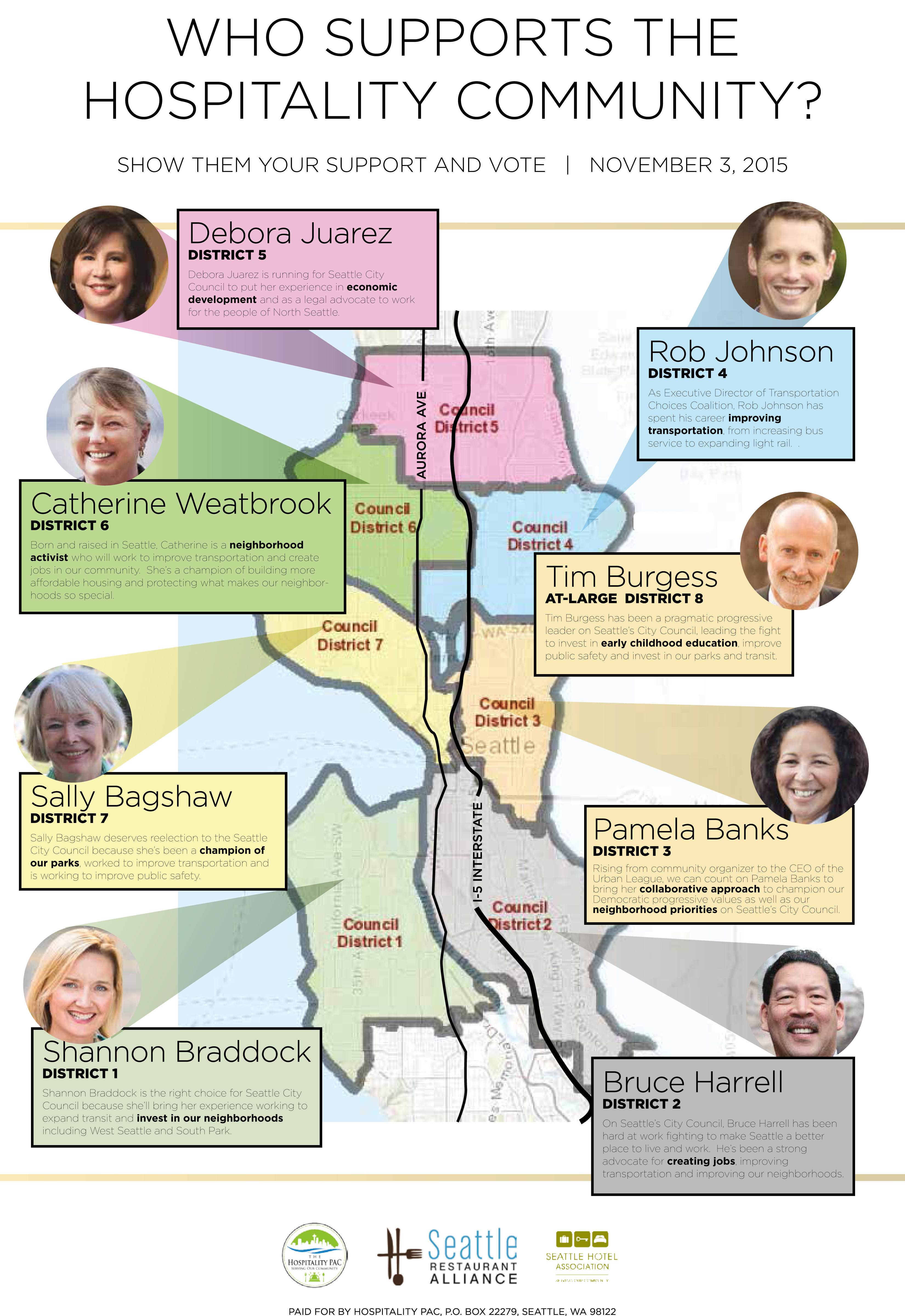What the Ninth Circuit’s tip-pool ruling means for Washington restaurants.
This article was originally published in April issue of Washington Restaurant & Lodging magazine. Updated on April 11, 2016.
By Bob Donovan, Donovan Employment Law
In February, the Ninth Circuit ruled that Department of Labor (DOL) regulations on tips and tip pools are valid, and are enforceable against employers who pay their employees at least the full federal minimum wage and do not credit tip income toward that wage.
These regulations, issued in 2011, state that tips are the property of employees, and that tips cannot be used by employers – including those who pay their employees the full federal minimum wage and do not take a tip credit toward that wage – except to implement valid tip pools, which can only include customarily and regularly tipped employees. DOL takes the position that such jobs as dishwashers and cooks are typically not “customarily and regularly tipped” and, therefore, must typically be excluded from mandatory tip pools. DOL also takes the position that management must be excluded from sharing in tips. Accordingly, the regulations have far-reaching implications for Washington’s hospitality businesses.
In 2012, the Washington Restaurant Association, together with the Oregon Restaurant & Lodging Association and others, challenged the DOL regulations in Oregon federal court. In 2013, that court decided in favor of the plaintiff associations, ruling that the challenged portions of DOL’s regulations are invalid, and that DOL is prohibited from enforcing them against anyone who was a member of the WRA or its co-plaintiffs at the time of the ruling. Then on Feb. 23, 2016, a three-judge panel of the Ninth Circuit reversed the lower court and validated the 2011 DOL regulations.
In March, the WRA and its co-plaintiffs filed a petition with the Ninth Circuit a Petition for Panel Rehearing or Rehearing En Banc. On April 9, the three-judge panel ordered DOL to respond to the motion within 21 days.
IF YOU HAVE A TIP POOL THAT MIGHT BE UNLAWFUL UNDER THESE REGULATIONS, WHAT SHOULD YOU DO?
Many operators are asking the same question: Should you change your tip pool to address this Ninth Circuit ruling while the review is pending?
There is no “one size fits all” answer to this question. To determine what is right for you, you should consider a number of factors including, for example, legal risks of not changing your tip pool, the impact changing your tip pool will have on your business, and whether you would change the tip pool program back to its current system if the court changes its ruling.
THE RISKS OF CONTINUING A TIP POOL PROGRAM THAT MAY VIOLATE THESE REGULATIONS WHILE A REVIEW IS PENDING
One risk is of DOL attempting to enforce the regulations against you while a request for review is pending. The current understanding is that the 2013 ruling in the WRA’s favor, including the injunction against DOL, remains in place until the requested review of the Ninth Circuit’s ruling is finalized.
Another risk is of an employee filing a lawsuit against you, alleging that your tip pool is unlawful under these regulations and seeking damages as a result (e.g., repayment of tips allocated to those who should not be in the tip pool under the DOL regulations). This risk remains, even if a request to review the ruling is granted. Specifically, even if a local federal court is not required to follow the Ninth Circuit ruling while review of the decision is pending, it may anyway – local federal courts are not required to follow the Oregon court’s 2013 ruling. This risk may be mitigated, however, as a local judge might agree to stay a local lawsuit filed under the relevant regulations, pending a final ruling by the Ninth Circuit. In addition, there are other arguments you may make to try to dismiss such a lawsuit, which have been successful in other parts of the country in similar lawsuits.
THE IMPACT ON YOUR BUSINESS CAUSED BY CHANGING YOUR TIP POOL MODEL
Changing your tip pool model impacts your business — including your service model, pay structure and employee morale. It would be even more disruptive to make these changes, only to change things back again if a request for review is granted and the Ninth Circuit ultimately rules that the regulations are invalid.
The level of this impact to your business depends, in part, on how drastically you envision changing your tip pool model. For example, if the change is to only move one position out of the tip pool, this will likely have a smaller impact than moving several positions out of the tip pool, or doing away with a tip pool, or even eliminating tipping altogether.
Many employers potentially affected by a court ruling wait until the court rules on a request for review before making significant changes to their practices. As explained above, however, there is risk to taking such a course.
If you decide to not make any changes to your practices while a request for review is pending, now is a good time to at least consider changes to your policies and practices to address this ruling, and to be ready to make those changes upon relatively short notice should the request for review be denied.
Whether you decide to make changes to your policies now or after the court rules on a request to review its ruling, here are alternative models to consider.
EXCLUDING FROM THE TIP POOL POSITIONS DOL CONSIDERS NOT “CUSTOMARILY AND REGULARLY TIPPED”
One option is to change your tip pool to exclude all positions DOL considers not “customarily and regularly tipped.” This, however, is not as simple as just saying all front-of-house employees can be in your mandatory tip pool, and all back-of-house employees cannot. Instead, there are several important factors that determine eligibility for inclusion in mandatory tip pools under federal law. These include employees’ duties, whether employees are managers, where employees perform their duties, and employees’ levels of customer service and interaction.
For example, if cooks regularly run food to tables and interact with guests as part of their regular duties, they might be eligible for inclusion in a tip pool even though they might be labeled “kitchen” or “back-of-house.” Moreover, while management must be excluded from mandatory tip pools under federal law, some positions are not so clear-cut, such as headwaiters, captains and other hourly employees who provide service, but also may have additional responsibilities. Such positions may or may not be eligible for sharing in mandatory tip pools, depending on their duties.
Many operators are not comfortable navigating the nuances created by DOL and the courts in determining who is eligible for inclusion in mandatory tip pools and the gray areas that can result for different positions. For such operators, one or more of the below options may be more attractive.
VOLUNTARY TIP POOLING
Another option is shifting to a voluntary tip share or tip pool program. If such a program is truly voluntary and not employer-mandated, it is not subject to the 2011 regulations. It is permissible for an employee to voluntarily tip out another employee who would be ineligible for inclusion in a mandatory tip pool.
Employees, however, sometimes challenge voluntary systems for being not truly voluntary. For example, they may claim they were coerced into making “suggested” contributions.
You can lessen the risk of a voluntary tip pool being challenged or found involuntary. Messaging to employees about such systems is important. Yet even when written materials explicitly explain the voluntary nature of the tip pool (e.g., that employees can choose whether to contribute and, if so, how much, on any given shift), it likely would be viewed as suspicious by DOL or a plaintiff attorney if everyone tips out exactly the same amount every night. Therefore, you will want to carefully consider how the voluntary tip pool is communicated to employees at the time it is implemented and as well as how it is implemented in practice to minimize legal challenges concerning its voluntary nature.
CREATING A MEANS FOR CUSTOMERS TO DIRECTLY TIP POSITIONS DOL CONSIDERS NOT “CUSTOMARILY AND REGULARLY TIPPED”
Another option is creating a way for customers to expressly tip positions that otherwise would likely not qualify for mandatory tip pools under federal law. For example, changing your credit card slips to have two lines for customers to leave a tip – such as one for “service staff” and one for “kitchen staff.” If customers leave tips on the line for “kitchen staff” in this example, it makes it harder for DOL or a plaintiff’s attorney to claim the kitchen staff are not “customarily and regularly tipped” employees.
This model is, however, likely foreign to DOL. DOL may, therefore, be suspicious of this system or view it narrowly. Careful consideration should be given to how to implement this system to minimize risk of legal exposure. Issues to consider include messaging to customers, how tips left for the kitchen staff will be distributed, and potentially taking precautions, such as not co-mingling tips left for service staff with those left for kitchen staff.
MANDATORY SERVICE FEES
Some restaurants are eliminating tips and introducing mandatory “service fees.” Because these fees are not considered “tips,” they are not impacted by these federal regulations. Generally, employers may distribute service fees however they choose.
If you implement mandatory service fees, you must comply with Washington’s service charge disclosure law. Several lawsuits have been filed alleging failing to comply with this law. Typically filed as a class action, such lawsuits are very expensive to defend against and run the risk of high awards for damages or high settlements.
Also, keep in mind that service charges paid to employees, unlike tips, are considered part of their paid compensation and therefore increase their regular rate of pay, resulting in a higher overtime pay rate. There are also potential tax implications to consider with such a model, including higher payroll taxes and loss of the FICA tip credit. You should discuss the financial implications of a service charge model with an experienced accountant before deciding whether this option is right for you, or whether an alternative model might be more financially feasible. For example, given these financial considerations, one option might be a “hybrid” approach, where you have a narrow tip pool that only includes customarily and regularly tipped employees, and a small service charge that is paid to employees removed from the tip pool, to offset their loss of the tip income.
NO TIPPING OR SERVICE FEES
Eliminating tipping or service fees and increasing prices to increase wages is an option that some operators are adopting. This approach simplifies legal considerations, though this option may not be the right business model for all operators.
ARBITRATION AGREEMENTS
Per the above discussion, there is legal risk with essentially every model that involves tips or service charges. This legal risk can be managed in a number of ways.
One way to manage this risk is to work with an experienced attorney to advise you on these models, which one might be best for you, and how to lower risk within that model. In addition, you may consider having employees sign an arbitration agreement in which they waive their right to bring or join collective or class actions against you. While this would not insulate you from investigations (and orders to pay damages, penalties, etc.) by government agencies such as DOL, it lowers the risk of needing to defend against class actions filed by employees alleging violations of these (and other) laws.
In Washington, such agreements must be written and implemented in such a manner that they will not be ruled unconscionable. There are also certain implications to these agreements that may make them unattractive to some operators. I therefore recommend against simply downloading an agreement from the Internet or trying to draft and implement one on your own. Rather, I recommend working with an experienced attorney to understand the implications of these agreements, and to draft and implement such an agreement if you decide it is right for your business.
In closing, these issues are complicated – from both a legal and business perspective. The information provided in this article is for educational and informational purposes only, to provide you with a basic overview of the issues and options for addressing them. This article should not be construed as legal advice, or as a substitute for legal advice. You are strongly encouraged to seek legal counsel if you have questions or concerns about your practices or these issues. n
Bob Donovan is available for formal legal advice and is offering WRA members a reduced rate for a 30-minute consultation on these issues. Contact him bob@donovanemploymentlaw.com or 206.743.9234 for more information.
TIMELINE
2010
Ninth Circuit Court of Appeals rules in Cumbie v. Woody Woo, Inc. that employers who pay their employees at least the full federal minimum wage and do not credit tip income toward that wage are not subject to federal regulations concerning who can be in a tip pool.
2011
U.S. Department of Labor publishes revised regulations, stating that tips are the property of employees, that tips cannot be used by employers except to implement valid tip pools, and that these regulations apply even to employers who pay their employees the full federal minimum wage without a tip credit. Under the regulations, only customarily and regularly tipped employees may be included in tip pools. Management and customarily non-tipped employees (per DOL, such as cooks and dishwashers) are excluded from “valid tip pools.”
2012
The WRA joins Oregon Restaurant & Lodging Association and others in a lawsuit asking a federal district court to declare portions of DOL’s 2011 regulations unlawful (including those declaring a property right in tips and extending the regulations to employers who pay their employees the full federal minimum wage without taking a tip credit towards that wage).
2013
District court rules in favor of the WRA et al, declaring the challenged portions of DOL’s tip regulations invalid, and prohibiting DOL from enforcing them against employers who were members of any of the plaintiff associations at the time of the ruling.
2016
Three-judge panel in Ninth Circuit reverses the District Court ruling, and holds that DOL’s challenged regulations are lawful. The WRA and its co-plaintiffs files a petition a Petition for Panel Rehearing or Rehearing En Banc with the Ninth Circuit. On April 9, the three-judge panel orders DOL to respond to the motion within 21 days.

